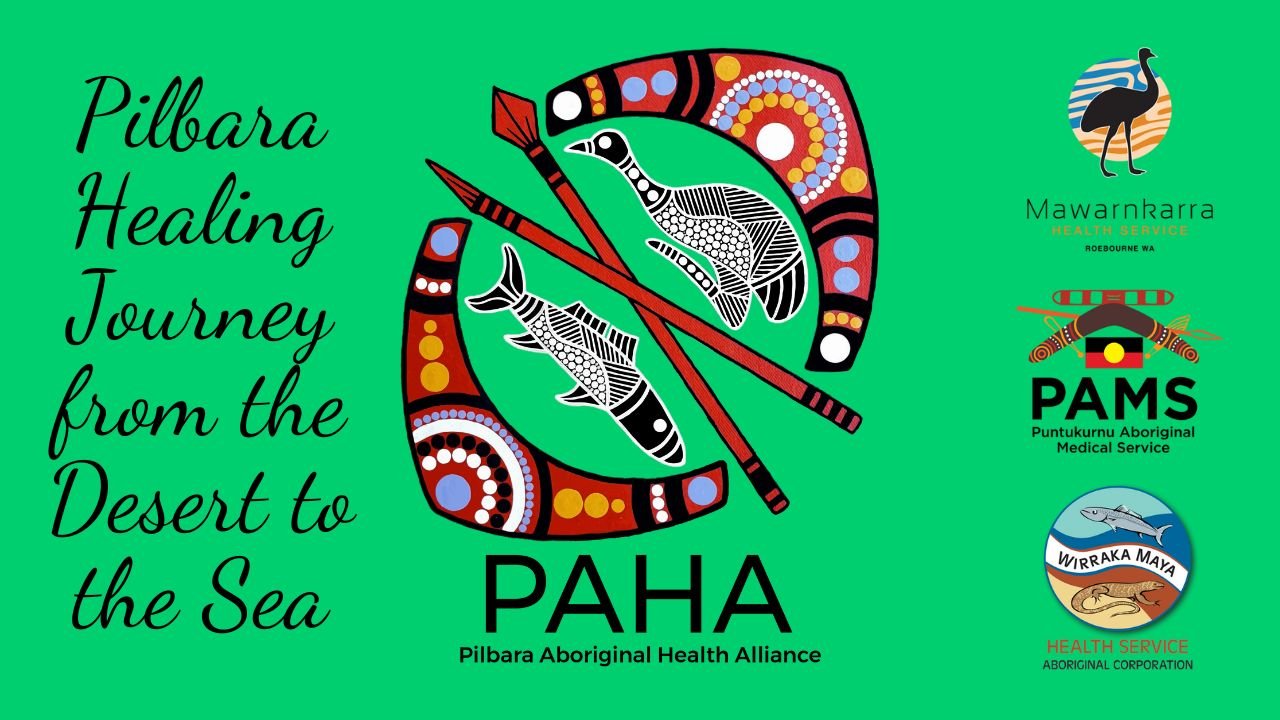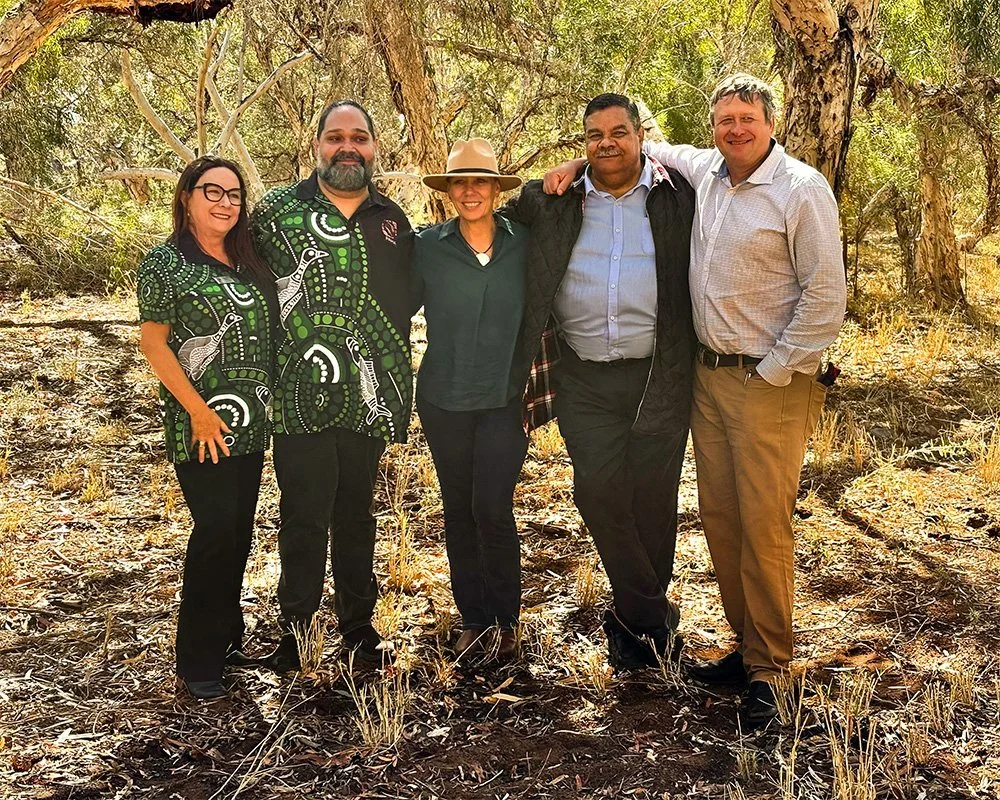PAHA EXPANDS SUPPORT FOR FAMILIES AND LEADS NEW MENS MENTAL HEALTH INTIATIVE
By Marli Ryan
The Pilbara Aboriginal Health Alliance (PAHA) has rolled out the Aboriginal Family Partnership Program (AFPP) across all three Aboriginal medical services in the Pilbara, offering wrap-around support to First Nations families during pregnancy and through their child’s first two years of life.
PAHA CEO Ashley Councillor, a proud Banjima man born and raised in Port Hedland, said the program offers holistic support for parents at every stage of their parenting journey.
Mr Councillor said, “Once they’ve come to the clinic and they’ve realised that they’re going to go through a new pregnancy, the team will then support them to understand what it means to be a new mother”
He said that the team helps identify the different parts of their life that may be impacted through the pregnancy, and then supports the family before and after the baby is born, right through till the baby is two years old
He explained that Aboriginal parents often face additional barriers compared to non-Aboriginal families, particularly in navigating available services.
He said it’s not only about information, it’s about approach. Culturally safe and holistic support is essential to make real progress. Rather than focusing solely on clinical care, service providers need to consider the broader picture, encompassing family dynamics, household challenges, and the community context.
“Our women need to be supported holistically, so we need to know what’s happening within their life, within their family unit, within their households, within their community, to be able to get a bigger picture to support them on their journey through their pregnancy.” he said.
Moving Toward a new Model
As part of its commitment to culturally safe, community-led care, PAHA is working to evolve the AFPP beyond its original U.S. framework into a locally driven, Pilbara-specific model.
Rather than applying a one-size-fits-all model, PAHA is working closely with local partners to create a uniquely “Pilbara-ized” version of the program, one that is led by community voices and shaped by cultural priorities.
“We’re looking at how to take that place-based approach for a ‘Pilbara-ized’ version of AFPP so that we can, through the three AMSs across the Pilbara, then ensure that that cultural element and that community-led design is right at the forefront.”
Men’s On-Country Exchange
Alongside AFPP, PAHA has supported a Men’s On-Country Health and Reconnection Exchange on Kariyarra Country, created to tackle men’s health issues in culturally safe spaces.
Mr Councillor said it gets tough for various reasons for Aboriginal men struggling.
“We know that our men don’t engage well in the space for multiple reasons. One is that Aboriginal men take the approach of internalising emotions. But we also know that there is limited culturally safe spaces for them to engage with services across the region”.
“The yarning circle was really the biggest part of the design of the event. But there were other things. There were ad-hoc engagements with different services”,
“We ate together. There was cooking of kangaroo tails. There were different service providers that came in and contributed to the functionality of the event. But really, the yarning circle was the biggest part of it.”
Mr Councillor shared the important role of cultural protocols.
“Each of the topics were led by elders first, so the elders engaged first, gave their insight, gave their understandings, their guidance and then the younger generations contributed to the discussions”
He said, among the most powerful takeaways from the event was a straightforward but deeply resonant message from participants: this kind of gathering needs to happen more often and it needs to happen on their terms.
Looking Ahead
Mr Councillor said men’s health will remain a priority for the Aboriginal Health Alliance.
“We know that men’s health is really important to family health, and we know that good family health is important to the community,”
“We need to be a part of that advocacy piece because that’s our core business. Our core business is to advocate to see an improvement in health outcomes for Pilbara Aboriginal people.”





